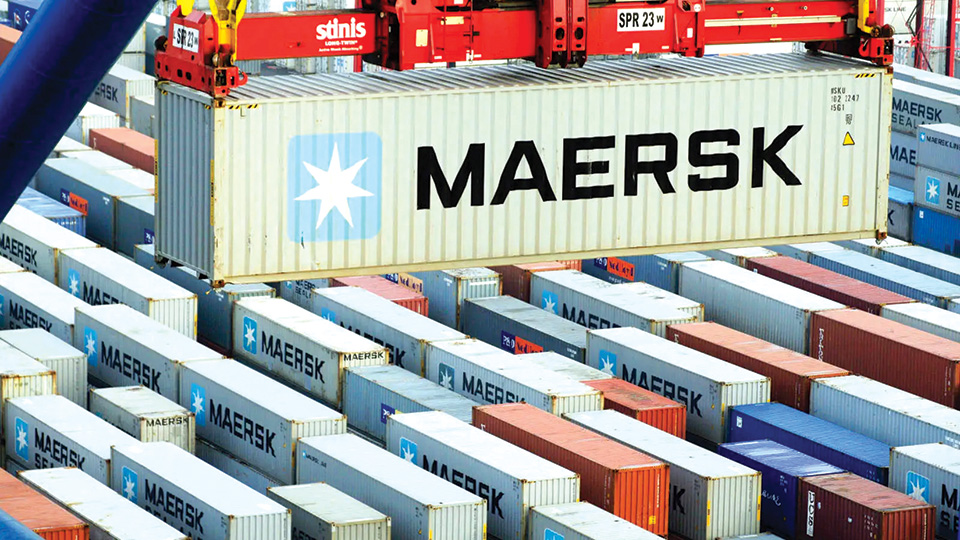
Dhaka : As Bangladesh's logistics sector grapples with underinvestment, sluggish infrastructure, and looming trade policy shifts, APS Logistics-a prominent joint venture operating in Bangladesh, Sri Lanka, and Pakistan-is pushing for strategic diversification and urgent policy reforms.
Established in 2016, APS Logistics has grown into a major player in the regional supply chain arena, handling over 10,000 TEUs of ocean freight and 5,000 tons of air cargo in FY24. With its head office in Dhaka, an air cargo facility in Tongi, and operations in Chattogram, the company employs over 60 professionals in Bangla-desh. Despite these achievements, the road ahead is far from smooth.
"Our business is heavily focused on exports, particularly from Bangladesh to the USA," said Yad Mahbub, Country Director, APS Logistics, while talking to The Bangladesh Monitor. "About 85 percent of our volumes are USA-bound, mostly ready-made garments. However, with tariff uncertainties under the Trump administration and potential policy shifts, we could face serious disruptions."
Yad Mahbub noted that major American brands like American Eagle, Walmart, and GAP rely on APS's air and ocean freight solutions. However, new tariffs and a lack of competitive infrastructure could put Bangladesh at a disadvantage-especially against competitor like India and Vietnam.
"India's logistics capabilities and domestic textile supply chain outmatch ours. They are one of the largest cotton producers and invested to build capacity to increase RMG export. Meanwhile, Bangladesh depends on imported fabrics for woven garments, which make up the bulk of our US exports," he explained.
With uncertainty mounting, APS is accelerating efforts to diversify trade lanes and focusing more on inbound shipments. However, Mahbub is realistic: "This won't happen overnight. The economy will face a transition period. In fact, I believe we should delay our LDC graduation until we're better prepared."

Yad Mahbub, Country Director, APS Logistics
Beyond external threats, Mahbub is highly critical of Bangladesh's domestic logistics landscape.
"Our ports, roads, and customs systems are outdated. It takes a truck 12-14 hours to reach Chattogram from Dhaka. How can we expect to be cost-effective when a truck can't do a round trip in same day?" he questioned. "The highway is still just four lanes. India and Pakistan have moved to eight-lane highways long ago."
Logistics, according to Yad Mahbub, remains one of the less priority sectors in national policymaking. "Production alone cannot sustain exports. If the logistics chain is bottlenecked-be it at Chattogram port or Dhaka airport-the whole supply chain collapses.
The inefficiencies extend to the country's customs bonded facilities and Container Freight Stations (CFS), which Mahbub said are plagued with delays and mismanagement.
Mahbub believes the government is missing out on massive investment potential. "Logistics giants around the world are eager to set up operations here, if they are offered secure land like those in EPZs. We could develop state-of-the-art warehouses, offer value-added services like pick-and-pack or store-wise delivery. This would reduce lead times, increase order volumes, and raise our global competitiveness."
Bangladesh's current airport infrastructure is another area of concern. "We have four RA3 scanners for air cargo screening, but one has been dead for years. The others are unreliable. Dollies are in short supply. How expensive can a dolly be? This negligence adds to lead times and drives up costs. Also, our airport ground handling fee for air freight is expensive compared to neighbor countries "

International airlines, Mahbub said, are pulling back because of high operational costs and previous issues repatriating their funds. "Qatar Airways, for instance, operates at only 40 percent of its earlier capacity here. That's alarming, especially for a country that aims to reach USD 100 billion in exports by 2030."
While the Chattogram seaport is still managing to cope under pressure, the Dhaka airport is falling behind. "Sylhet airport doesn't even have cargo infrastructure," he added.
Despite all odds, APS Logistics is adapting. "We're not sitting idle," said Mahbub. "We're expanding our services beyond the US trade lane. We're increasing our focus on imports. However, the government must match our urgency. Logistics needs to be prioritized-now."
With mounting global competition and domestic inefficiencies colliding at the heart of Bangladesh's export-driven economy, APS Logistics' call for reform comes not a moment too soon. Whether policymakers will respond remains to be seen-however, the clock is ticking.












